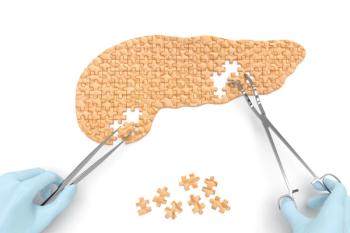
FDA OKs Isatuximab Combination Therapy for Relapsed, Refractory Multiple Myeloma
Clinical trial data showed that the isatuximab (Sarclisa; Sanofi) regimen reduced risk of disease progression or death in patients with relapsed or refractory multiple myeloma.
The FDA has approved isatuximab (Sarclisa; Sanofi) in combination with carfilzomib and dexamethasone for the treatment of relapsed or refractory multiple myeloma (RRMM).
Adult patients with RRMM are eligible for treatment with isatuximab if they have received 1 to 3 prior lines of therapy. Isatuximab is also approved for use in combination with pomalidomide and dexamethasone for the treatment of adults with RRMM who have received at least 2 prior therapies, including lenalidomide and a proteasome inhibitor.
The latest approval is based on data from the phase 3 IKEMA study, which enrolled 302 patients with RRMM across 69 centers and 16 countries. The study evaluated treatment with isatuximab added to Sarclisa combination therapy (Kd) versus standard of care Kd alone in patients with MM.
According to the findings, treatment with isatuximab plus Kd reduced the risk of disease progression or death by 45% (hazard ratio 0.548, 95% CI 0.366-0.822, P=0.0032) versus standard of care Kd alone. The median progression-free survival (PFS) for isatuximab combination therapy was not reached at the time of the pre-planned interim analysis.
Secondary end points for the trial assessed overall response rate (ORR), including complete response rate (CR) and very good partial response (VGPR).
- There was no statistically significant difference in ORR which remained similar for each treatment arm at 86.6% for the isatuximab combination therapy versus 82.9% for Kd (P=0.3859).
- The rate of CR was 39.7% in the isatuximab combination therapy arm and 27.6% in the Kd arm.
- The rate of VGPR was 33% for patients receiving isatuximab combination therapy and 28.5% for patients receiving Kd.
Additionally, at the time of interim analysis, overall survival data were still immature.
The most frequent adverse effects for isatuximab versus the control arm were upper respiratory tract infection (67% vs 57%), infusion-related reactions (46% vs 3.3%), fatigue (42% vs 32%), hypertension (37% vs 32%), diarrhea (36% vs 29%), pneumonia (36% vs 30%), dyspnea (29% vs 24%), bronchitis (24% vs 13%), and cough (23% vs 15%).
“In the phase 3 IKEMA study, the addition of Sarclisa to carfilzomib and dexamethasone reduced the risk of disease progression or death by 45%,” Thomas G. Martin, MD, associate director, Myeloma Program, The University of California, San Francisco; professor of medicine, Adult Leukemia and Bone Marrow Transplantation Program; and coleader of the Hematopoietic Malignancies Program, Helen Diller Family Comprehensive Cancer Center, said in a statement. “This approval is an important advancement for patients whose disease has relapsed and reinforces the potential for Sarclisa to become a standard of care in relapsed or refractory multiple myeloma.”
Reference
- FDA approves Sarclisa (isatuximab) in combination with carfilzomib and dexamethasone for patients with relapsed or refractory multiple myeloma. News release. Sanofi; March 31, 2021. Accessed April 1, 2021.
https://www.sanofi.com/en/media-room/press-releases/2021/2021-03-31-23-15-00-2202919
Newsletter
Pharmacy practice is always changing. Stay ahead of the curve with the Drug Topics newsletter and get the latest drug information, industry trends, and patient care tips.























